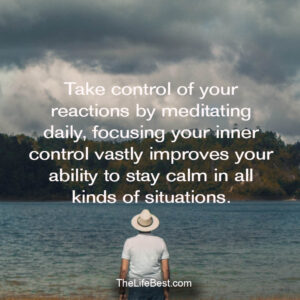The angry people are those people who are most afraid.

The angry people are those people who are most afraid.
-Dr. Robert Anthony
Anger is a common human emotion, but excessive or uncontrollable anger can often signal underlying fear. Dr. Anthony explains that anger can act as a protective mask for feelings of vulnerability, fear of rejection, or a sense of being out of control. Even in cases of legitimate grievances, fear can play a role in our anger, such as fear of being hurt again or losing something important. The key is to reflect on the underlying fear when anger arises, allowing for healthier anger management and emotional growth.
Anger is the mask that fear wears. Peel it away, and you’ll often find vulnerability beneath.
The Fear Behind Anger: Unveiling the Hidden Emotion
Anger is a potent and often misunderstood emotion, but beneath its surface lies a complex web of underlying feelings, with fear being one of the primary culprits. This summary article explores the intriguing relationship between anger and fear, revealing that many angry people are, in fact, the ones who are most afraid.
While anger is a natural human response, it often arises as a defense mechanism against perceived threats or vulnerabilities. When individuals feel threatened, be it by external circumstances or internal insecurities, anger can serve as a protective shield. By recognizing that anger frequently masks deeper fears, individuals can begin to address these underlying emotions, leading to healthier emotional well-being and improved relationships.
Understanding this connection between anger and fear is a crucial step in the journey of self-awareness and emotional growth. By learning to manage anger and uncovering the hidden fears beneath it, individuals can cultivate healthier coping strategies, build stronger connections with others, and ultimately lead more fulfilling lives.
Can anger management techniques be more effective when considering underlying fears?
Acknowledging and addressing the underlying fears that trigger anger is essential for effective anger management. Understanding this connection allows individuals to develop tailored techniques that go beyond surface-level anger control, leading to improved emotional well-being and healthier relationships. By addressing the root causes, individuals can gain better control over their emotions and foster personal growth.
Managing anger means understanding the fear that ignites it.
Understanding the roots of your anger is the first step toward mastering it.
5 tips for managing anger in a healthy way:
Managing anger in a healthy way is crucial for maintaining both our emotional well-being and the quality of our relationships. Anger is a natural human emotion, but when left unchecked or expressed inappropriately, it can lead to negative consequences. Here are five valuable tips for effectively managing anger in a healthy and constructive manner:
1. Identify Your Triggers
Understanding what typically triggers your anger is the first step toward effective anger management. Is it a particular person, situation, or circumstance that sets you off? Once you identify your triggers, you can take proactive steps to either avoid them or develop coping mechanisms to handle them better. Awareness of your triggers empowers you to take control of your emotional responses.
2. Take Some Time to Cool Down
When anger begins to well up inside you, it’s essential to take a step back and give yourself time to cool down. Avoid reacting impulsively in the heat of the moment. Instead, take a few deep breaths and physically distance yourself from the situation or person causing your anger. This pause allows your body’s physiological response to anger to subside, giving you a clearer perspective on the situation.
3. Talk to Someone You Trust
Sharing your feelings of anger with someone you trust can be incredibly therapeutic. Discussing your anger with a friend, family member, or therapist can help you gain insight into its underlying causes and provide emotional support. Talking it out can also lead to healthier ways to express your feelings, as well as constructive solutions to the issues that trigger your anger.
4. Practice Relaxation Techniques
Relaxation techniques are invaluable tools for managing anger. Techniques such as deep breathing exercises, mindfulness meditation, progressive muscle relaxation, and yoga can help you calm your mind and body. Regular practice of these techniques can reduce stress, anxiety, and anger, promoting a more peaceful and balanced state of mind.
5. Seek Professional Help If Needed
If anger continues to be a persistent issue in your life, despite your best efforts, it may be beneficial to seek professional help. A trained therapist or counselor can provide you with specialized anger management strategies and coping skills tailored to your unique situation. They can also help you explore any underlying emotional issues that may be contributing to your anger.
Conclusion
Anger is a normal and healthy emotion, but it’s essential to manage it effectively to avoid negative repercussions in our lives. By identifying triggers, taking time to cool down, talking to trusted individuals, practicing relaxation techniques, and seeking professional help when necessary, you can develop healthier ways to express and manage your anger. Ultimately, this leads to improved relationships, increased emotional well-being, and a more balanced and fulfilling life.





